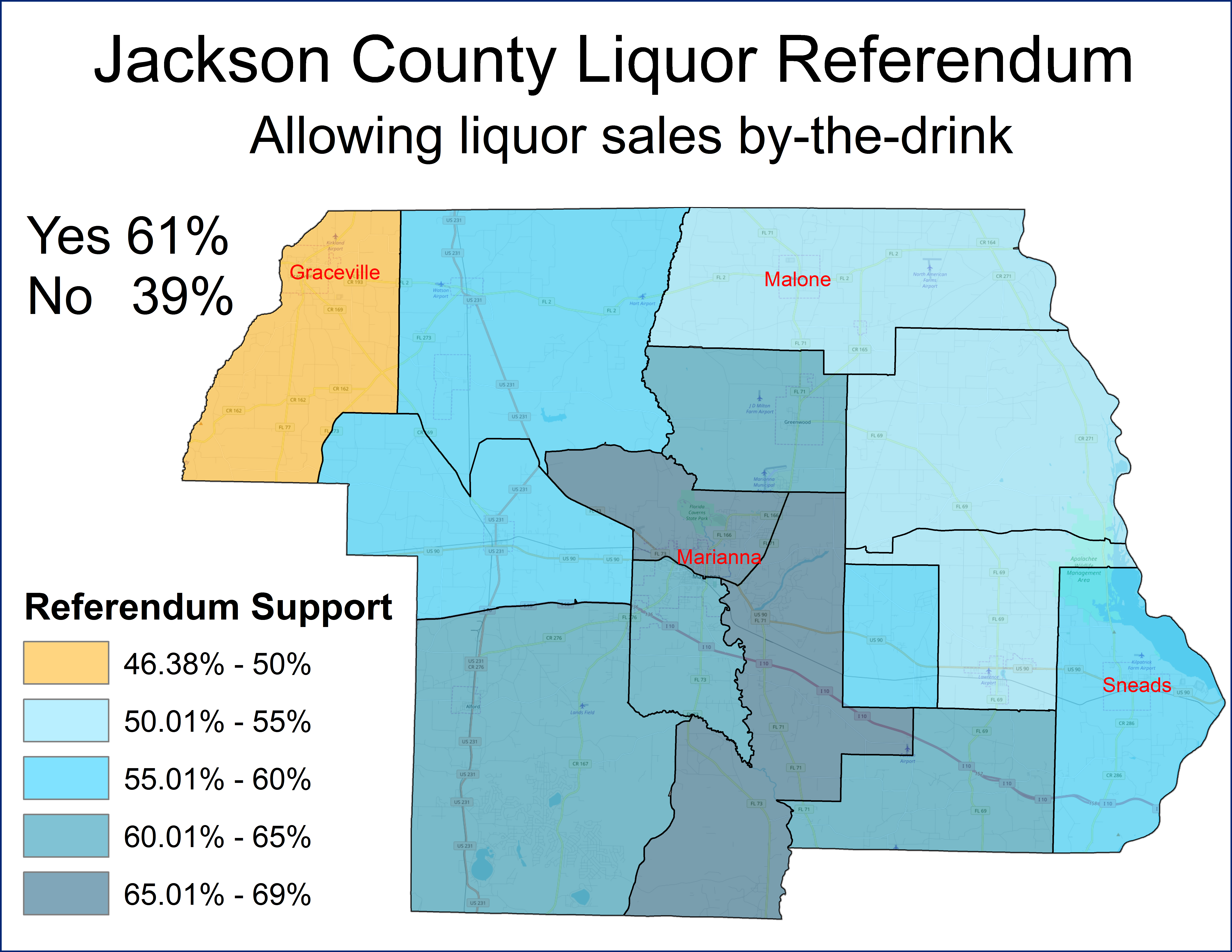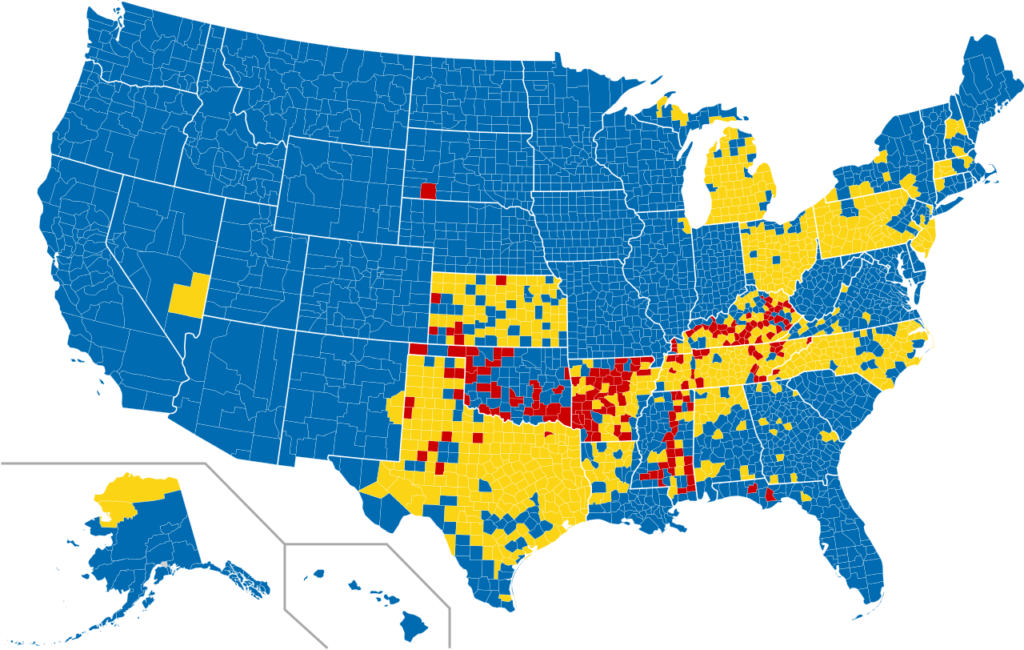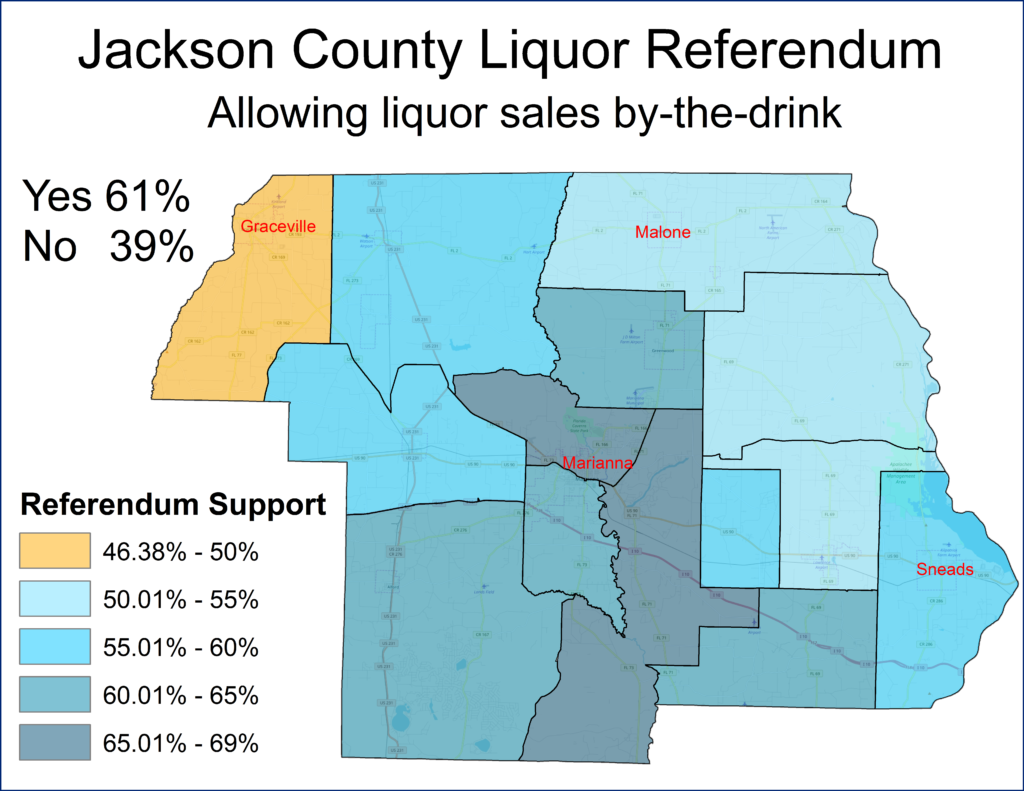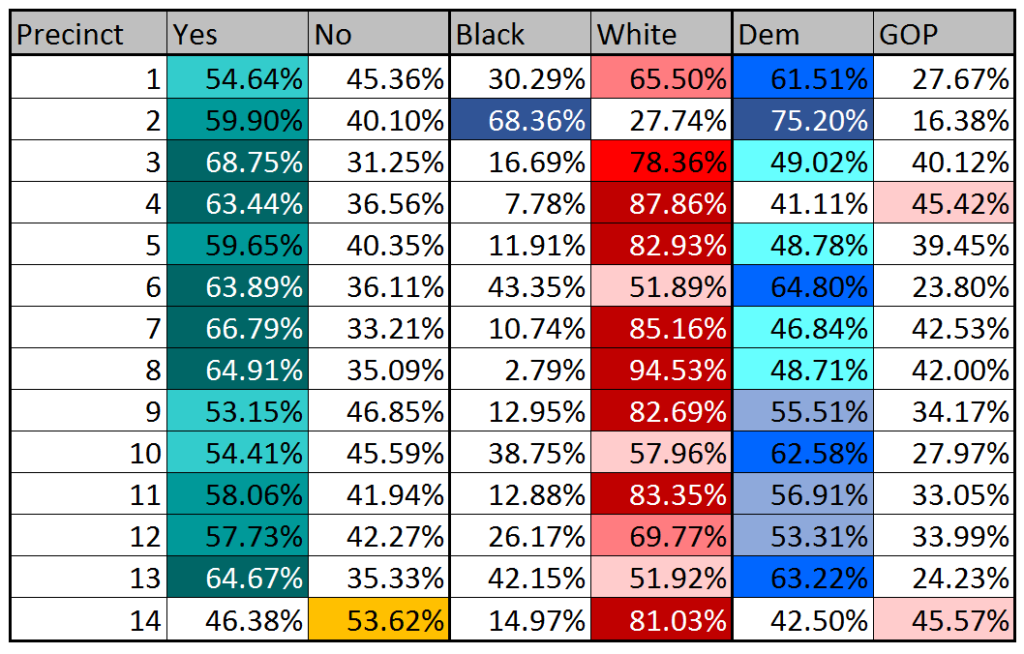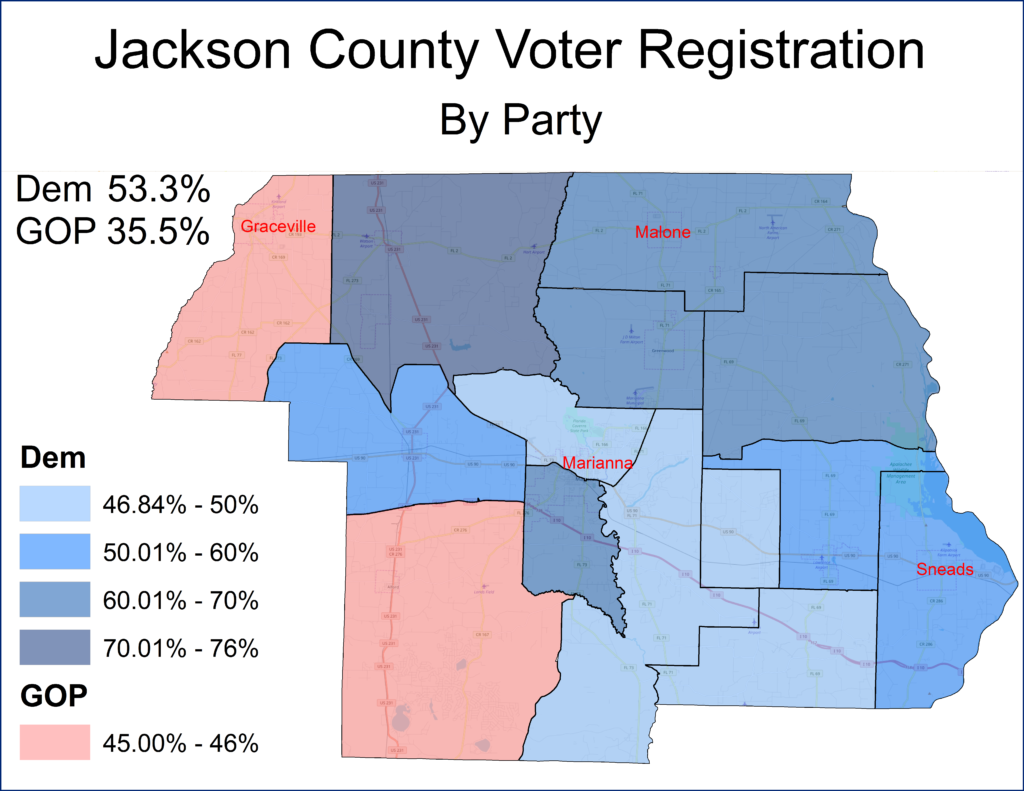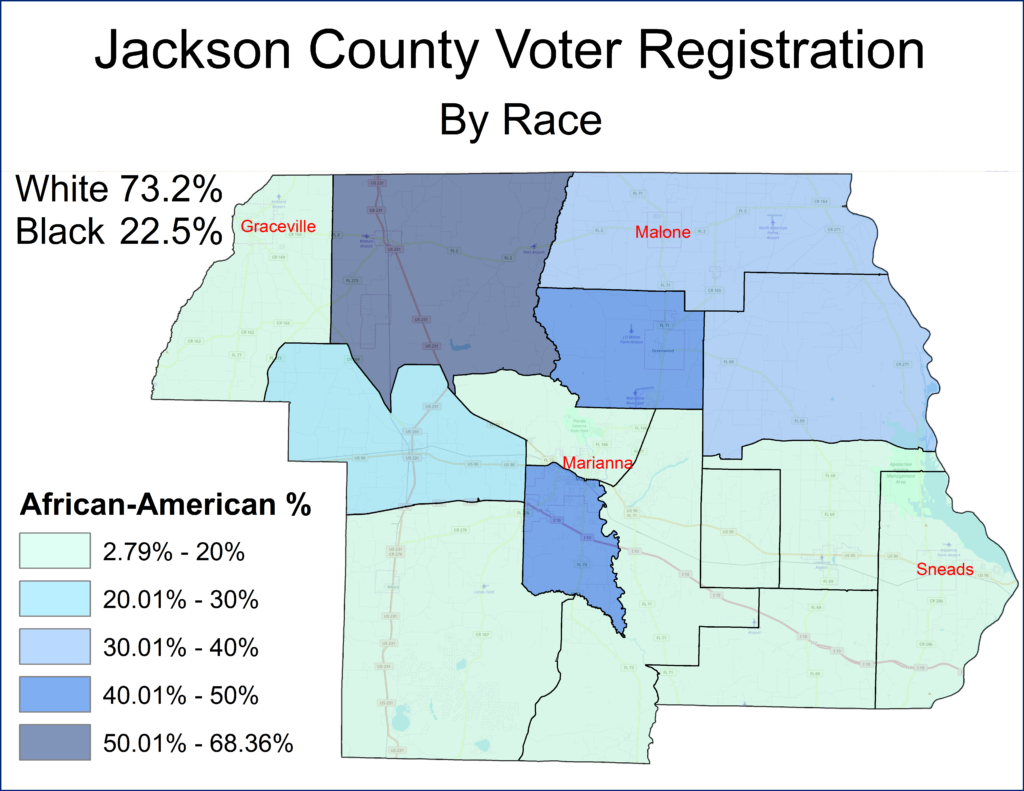At some point in your life you have heard the term “dry county.” For many of us it’s when we are trying and failing to buy alcohol while on a trip out of town. Despite Prohibition ending in the 1930s, there are still many places in American where you cannot purchase alcohol. Some jurisdictions limit purchases to “lighter” drinks like beer or wine. Other jurisdictions ban sales on Sundays. These different regulations are often referred to a “blue laws.” The system varies from county to county and is constantly changing as counties update their policies. This nationwide map from Wikipedia shows generic county designations. Blue counties are “wet,” meaning they have little or no serious hindrance on purchasing alcohol. Yellow counties are mixed, often referred to as “damp” meaning they have different restrictions like sales times, bans on liquor, and so on. Red counties are “dry,” meaning no alcohol is sold in the county.
The variation in regulation can be wide. Not all yellow or blue counties are alike. In Florida, almost all counties are now considered wet. Lafayette is considered mixed but its regulations are so strict its often referred to as a dry county. Liberty and Washington Counties are completely dry. Lafayette doesn’t allow alcohol in restaurants and only 3 stores (along highway 27) sell beer/wine. If you want a good read on the status of alcohol in the panhandle of Florida, check this article out. In recent years counties have moved away from these bans as they seek income for their community. Many chain restaurants don’t want to open in counties with dry laws due to limits on revenue; creating an economic incentive. Suwanee and Madison County both went from dry to wet via referendum in the last few years.
Jackson County’s Referendum
Jackson County was considered “wet” by the map above. However, it was more of a mixed, or damp, county. Residents could buy liquor at stores that had a license. However, restaurants could only sell wine and beer (and had to sell food as well). You couldn’t order liquor-by-the-drink at any establishment in the county. Earlier in 2017 a group called Jackson Forward pushed for the county to hold a referendum on allowing liquor-by-the-drink sales in Jackson County. The group was made up of business, community, and political leaders in the county. The county agreed to hold a mail-in election to decide the issue; with the final day to turn your ballots in being November 14th.
The campaign for the measure saw a strong support campaign. Jackson Forward paid for direct mail and used live-ID calling firms to identify supporters and make sure they turned their ballots in (called absentee chase in campaign lingo). Several churches were opposed to the measure, a definite force in a rural, religious county. Many churches offered themselves for opponents of the measure to drop their ballots off at.
The results came in quick on election night. With over 10,000 votes cast (37% turnout) the measure passed with 61% of the vote.
The measure won in all but the Graceville precinct. Marianna, the the county seat of Jackson, had some of the strongest support for the measure.
While we don’t have turnout data yet, the results don’t show any clear correlation with party affiliation or race. More rural precincts were less in favor of the measure compared to those around Marianna (by far the closest to urban the county gets).
It is fair to say white and African-Americans, as well as both Democrats and Republicans, backed the measure.
Conclusions
Alcohol referendums in Florida have had a good deal of success for the pro-alcohol side. Miami-Beach’s rejection of a rollback of last call last week as well as the switches to “wet” for Suwanee and Madison indicate an electorate willing to let people make their own decisions and not scared off by ‘vice.’ Long term we are likely to continue to see counties move away from “dry” status as newer generations grow up and economic incentives become too good to ignore.

